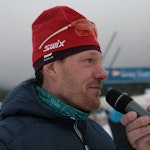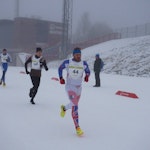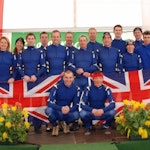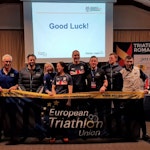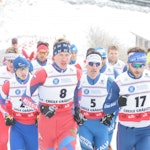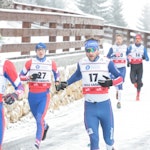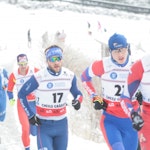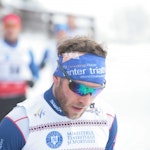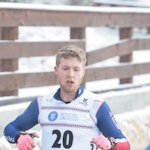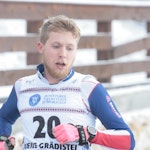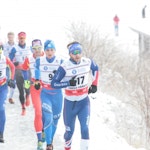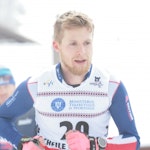We are used to seeing the Brits arrive in huge numbers at the European and World Championships and have often written about this. The history of our sport in the UK came from very humble beginnings but from that start came a pride to wear the “GB kit”, a pleasure in the recognition that came with it at club, local and national level and a tremendous team spirit.
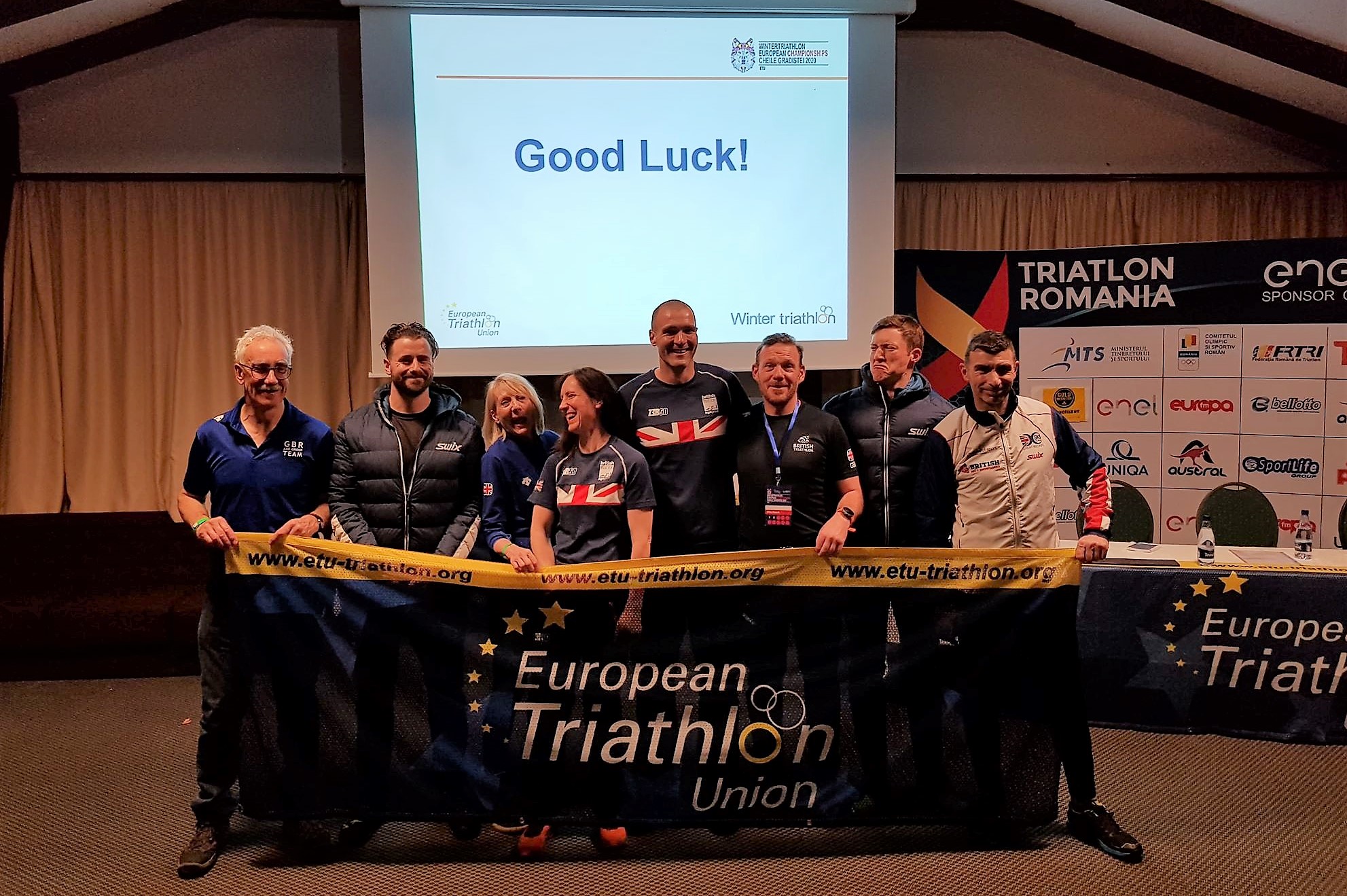
Winning medals across the range of multisport events, the British athletes never seemed to do so well at the Winter Triathlon events. Now, if there was a sport specifically designed for racing in the rain and fog, they would no doubt be world leaders but snow … not much of it in England and what there is in Scotland has a focus more on the snow-board and downhill communities. Cross-country skiing was something that the military focussed on and as such, there were not so many folk whose attention was on, or whose ability was there to master the technique needed for racing on cross-country skis.
In recent years that has changed and changed for the better under the leadership and guidance of Keith Jenns.
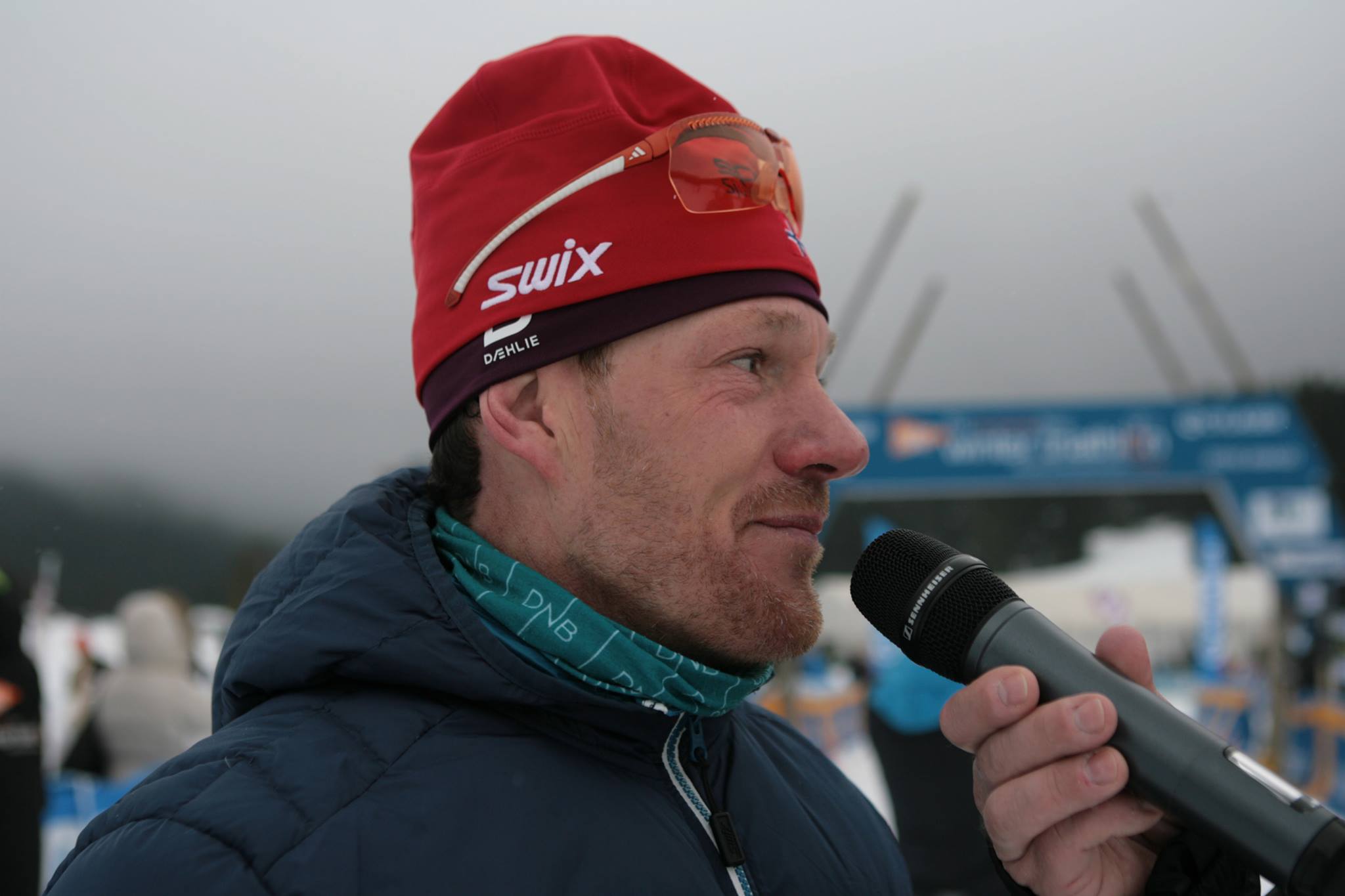
Following a successful career in the British Military as a specialist delivering mountain leadership skills to the Armed Forces and Special Forces worldwide, Keith decided that he had to share his considerable and extensive experience. He does so with great passion and patience and since leaving the Army, has been helping others achieve their aspirations in a range of winter sports.
He is now one of the main “go to guys” in the industry and has been the real motivator behind the development of the British Winter Triathlon team, both Elite and Age-Group. An accomplished Nordic skier, Keith has been a squad member of the British Nordic Ski Team representing Great Britain at 11 World Championships and 25 World Cups and is the current Manager and squad member of the Great Britain Winter Triathlon team, winning a Bronze medal at the 2017 ETU Etna Winter Triathlon Championships.
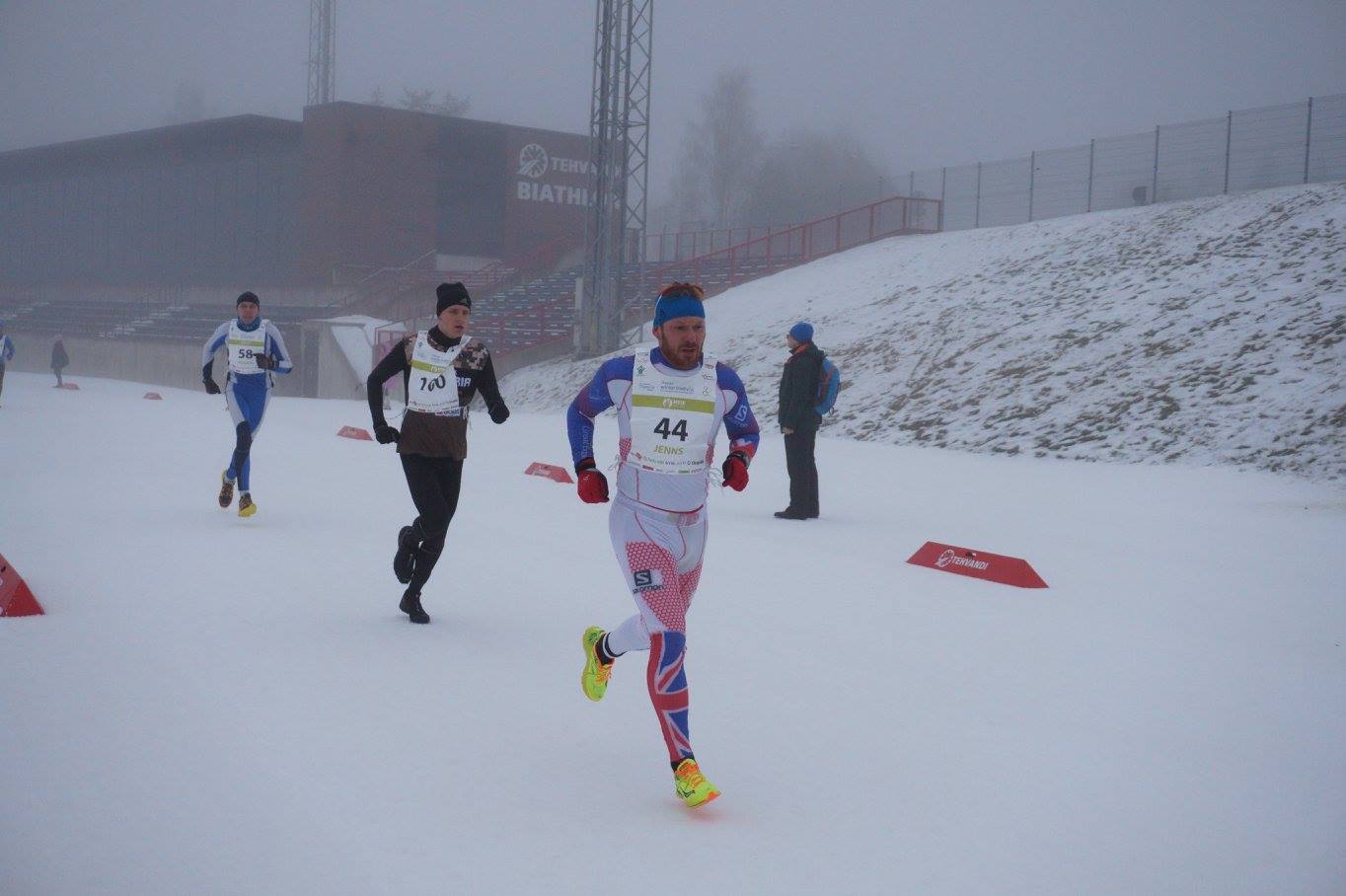
It is not just enthusiasm that is behind this but also a proven track record; he produced an instructional book and DVD and co-authored Ski Touring and Ski Mountaineering with Henry Branigan MBE. He has climbed worldwide, including expeditions to the Himalayas and was a supporting leader on the Military’s 2006 West Ridge of Everest Expedition junior team. He has also picked up numerous other British Services outdoor qualifications and has a Diploma in Management and Leadership, Sports Science & Therapy.
Keith took some time out after the two championships held in Asiago and Cheile Grădiştei to tell us a bit about how two British athletes had made the move from Age-Group to Elite.
We hear first from the 2018 World Champion, from his victory in Cheile Grădiştei, Alex Rhodes. Alex had also won gold at the 2017 Târgu Mureș ETU Cross Duathlon European Championships and had made appearances on the podium in World and European cross events. He moved to the Elite in 2019.
Why did you want to race Elite?
I made the step up a year ago to race Winter Triathlon and Xterra as an Elite because I felt like I wanted to continue to push and challenge my ability and really see how far I could get. I had been winning a number of championship races at Age-Group level and whilst I could carry on and there is still competition at that level, I wanted to continue to push myself and test my ability and to be around those who would really make me work hard, so this is the next logical step. Jumping in with the ‘big boys’ was a way of making me really raise my game and think about what I really needed to do to improve and continue to move forwards; things can plateau if you don’t continue to mover forwards.
Was It a big step from AG to Elite?
Yes and no. There are still very good athletes at Age-Group level who could probably make the step and decide not to and will still raise the level of competition, but I think the big difference, aside from the increased race distances and intensity, is that EVERYONE you’re racing is at that top level. There is no hiding, there’s no settling for a 2nd, 3rd, 4th position if you’re not feeling it or psychologically prepared. You either keep up or you get spat out the back. I think that’s where the big step comes in, in having to make sure you are professional in everything you do, making sure you get the most out of your fitness, equipment, nutrition and the marginal gains you can capitalise on throughout, because at the end of the day 2-3min over 1h-1h30 race could be the next 5 or 6 places, its as close as that.
Which Is the hardest discipline to train for?
Has to be the ski. Coming from Great Britain, there is very little snow time. I try and make the most of getting away for a week over the winter break and maintaining that fitness on roller skis and ski ergo when I’m back on the road but the reality is that I’ve probably had as much time on the snow over the past two years that the majority of the European athletes have had in the past two weeks; that really makes a difference. And considering that’s probably only about 4 weeks in my life, I’m not doing all that bad in holding my own with these guys. Just like swimming it is quite a technique-driven discipline (along with obviously being aerobically conditioned) so developing that efficiency takes time.
What training do you do different?
Over the winter I include a little bit of cross training, which is also good to mix things up for racing Xterra. I mainly swap some of my sessions for either roller-ski/ergo session, ski mountaineering, then I try to get away for a week or so to get back and get a feel for the snow.
Are you happy with your performance?
For this race (2020 Europeans) sadly I was disappointed. I came down with an injury to my back during the first 10-minutes of the race. I have never been one to give up on a race so I didn’t, however I did have to nurse myself around the course. Despite that I still managed to make 18th place, which is certainly not bad considering. What I am happy with is knowing where I am at with my ability and where, on a good day, I will sit with these guys, that is certainly a real positive this year in closing towards the top 10. This is where being a professional comes in, taking these days on the chin where it doesn’t quite work out, getting your head up and looking at how or what you could better to make it happen in your next race.
What, if anything, would you change?
More snow!
Our next athlete is the 2019 European Champion, Angus Young, who moved into the Elite ranks this year.
Why did you want to race Elite?
I first got the idea to give it a go after racing the European Championships last year and winning my Age-Group. I led the run into transition for all of the age-group wave by a decent margin. By the end of the race I had slipped a few places but was still at the pointy end of all of the entire race. Moreover as we competed on the same length course as Elite men I could see that my times were comparable. Over the next year I thought more and more about stepping up to push myself against the top racers in the world so I decided to apply and see how I would stack up in the Elite field.
Was it a big step from Age-Group to Elite?
The step up from the Age-Group field was phenomenal, it was apparent as soon as the race started. I went from leading off the run in the AG wave to going into T1 almost two minutes behind the leaders. Perhaps the most noticeable difference could be seen on the cross country ski leg. The form of the top athletes is flawless even when they are tired whereas Age-Group athletes really struggle come the end of the race.
Which was the hardest discipline to train for?
Without doubt the cross-country skiing. Living in the UK it is very hard to get away to get time on snow. You can train on roller-skiis but this can only get you so far.
What difference training do you do different?
Since last year I have really stepped up the training volume. I’m not doing a vast amount more of intensity but I’m spending a lot more time training at a low heart-rate.
Are you happy with your performance?
I’m over the moon with my performance. My goal going into the race was to hold my own and see how I stack up. Whilst I’m still a long way from the leaders my run/bike is on a similar level to a lot of the field. I have lots of room for improvement on the ski leg but this can be worked on
What if anything would you change?
I think for next year I am going to try to get a few more weeks on snow beforehand. This year my skiing time was limited and I really paid for it out on the course. Other than that in future I think that I would benefit from arriving at the race venue a day or two earlier to make the build up a little more relaxed.
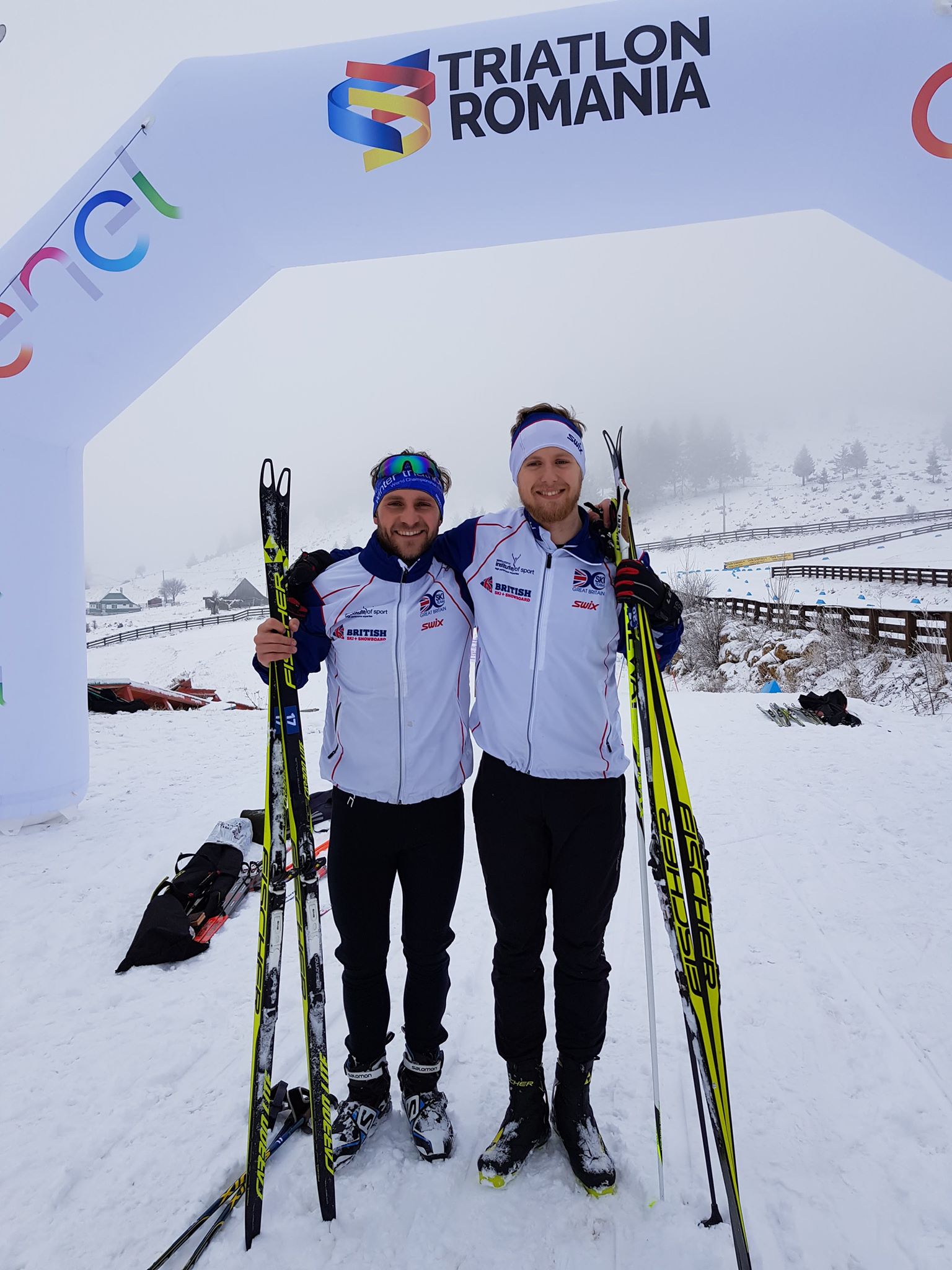
Remarkable and honest accounts from two athletes who have made a courageous step up from racing and winning medals as Age-Group athletes, to the incredibly intense Elite ranks. While we see this in our Multisport events, it is not so frequent in triathlon racing but, with the Age-Group athletes now racing in the draft-legal format, there is even more chance for the National Federations to identify promising talent that has been missed in early years.
Without the support of dedicated coaching, this cannot happen and within the Winter Triathlon extended family are a number of people who have the ability to motivate. Aside from the training and support provided to deliver these two athletes from Age-Group to Elite racing standard, Keith Jenns has been offering support and guidance to the older athletes and, with the close co-operation between him and the Italian team, there are plans for a series of training camps at some of the popular venues ahead of the 2021 races.
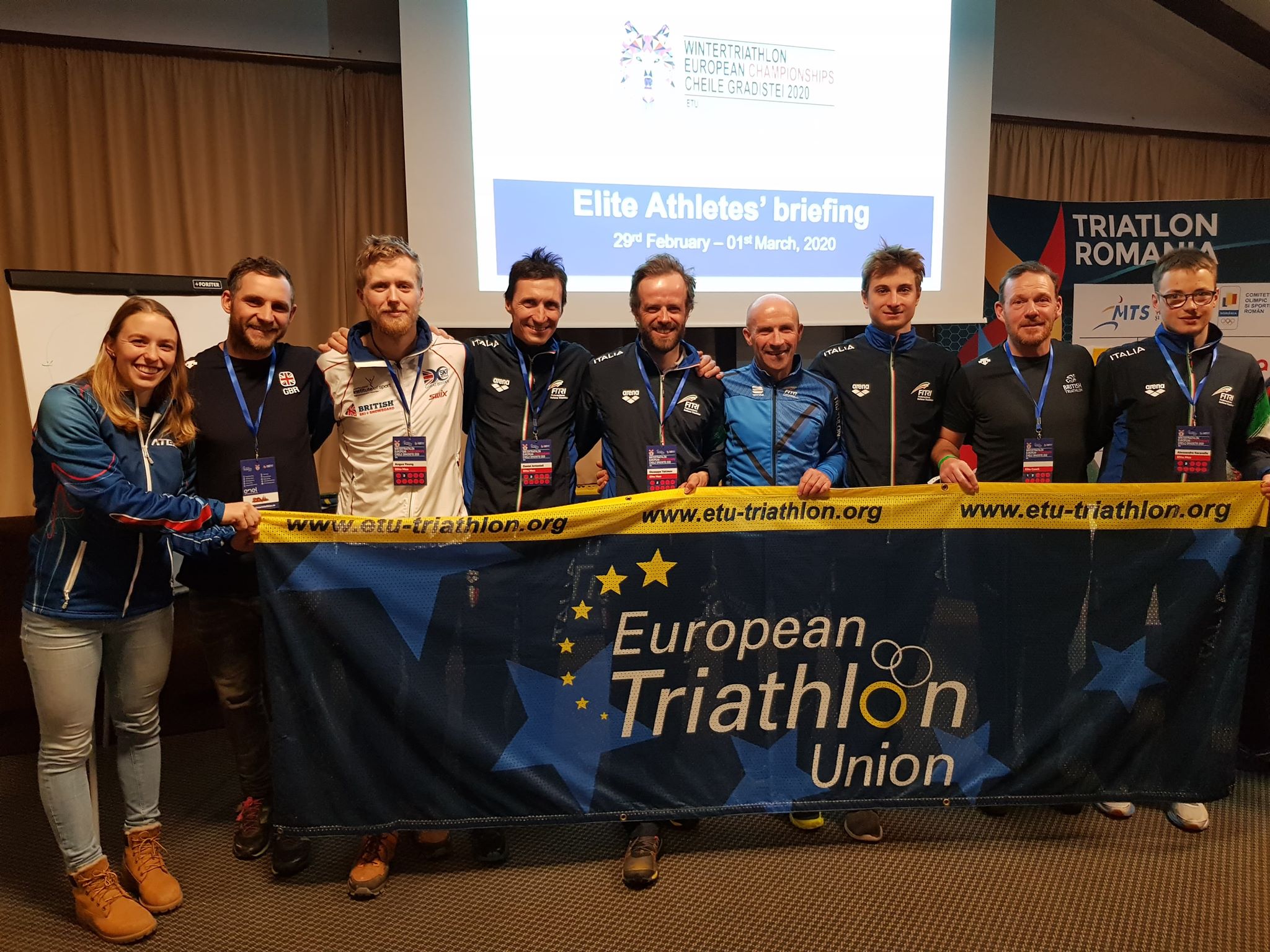
Keith speaks German fluently and is happy to take enquiries from athletes who are looking to improve their skills on snow.
As we look back at the exciting racing in Asiago and Cheile Grădiştei, we can also afford ourselves a little luxury of looking forwards to hopefully, meeting up again soon and sharing stories at a race.

